
LATTEST
Back to Basics Thanks to Bolivia
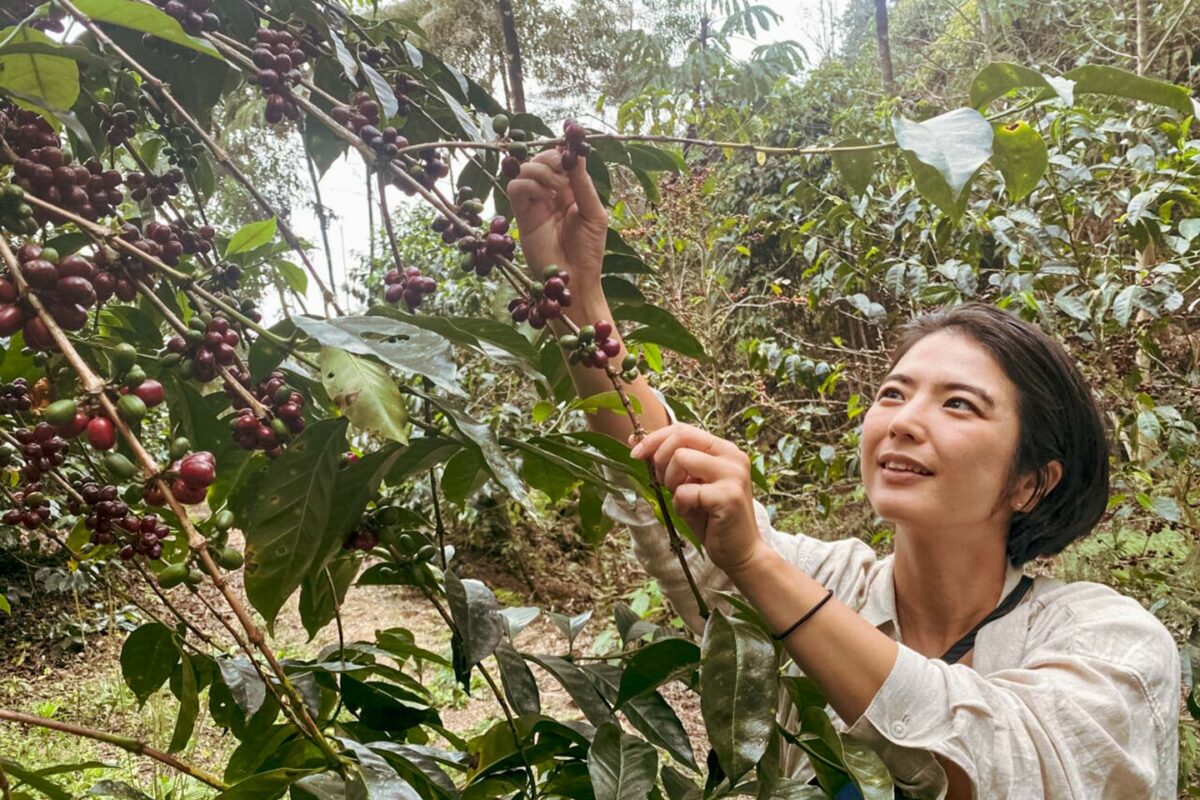
Lattest began as an espresso bar in 2012 with the concept of training and empowering female baristas. Now, Lattest has six cafes in Tokyo, each staffed with an all-female crew. Yumi Munehiro is the general manager at Lattest. With over ten years in the coffee industry, Yumi recently spent a week in Bolivia, her first ever trip to a coffee producing country.

No love for coffee
It was in January 2022 that I first noticed I wasn’t enjoying coffee anymore. I felt my career and the industry were at a standstill, and it was maybe time for me to move on, not just from this job but coffee as a whole.
I was surrounded by people who were incredibly passionate about coffee, people dedicated and committed to perfecting their craft. But that wasn’t me. Faced with that kind of passion, I began questioning my place in the industry.
I’d also found it harder to ignore the fact that the owner and I had different visions for Lattest. The owner wants to grow Lattest to bring more coffee to more people, and we now have several branches in Tokyo, each shop having a bigger capacity than your average cafe. But I wanted to go small and intimate. Create a place where I could easily interact with customers. While my role gave me the freedom to do what I wanted, there were many aspects where I felt constricted. Until now, I had accepted this as part of the job, but I was beginning to want something else.
I decided to talk to Suginaga, owner at Manly Coffee in Fukuoka, and see what she had to say. I spoke about how I was feeling and was surprised to hear that Suginaga had gone through the same thing in the past. It was so good to hear that someone like her had had a similar experience, and still stayed in the industry. Our conversation gave me hope that one day, I’d rediscover my love for coffee too. It was a huge weight lifted.
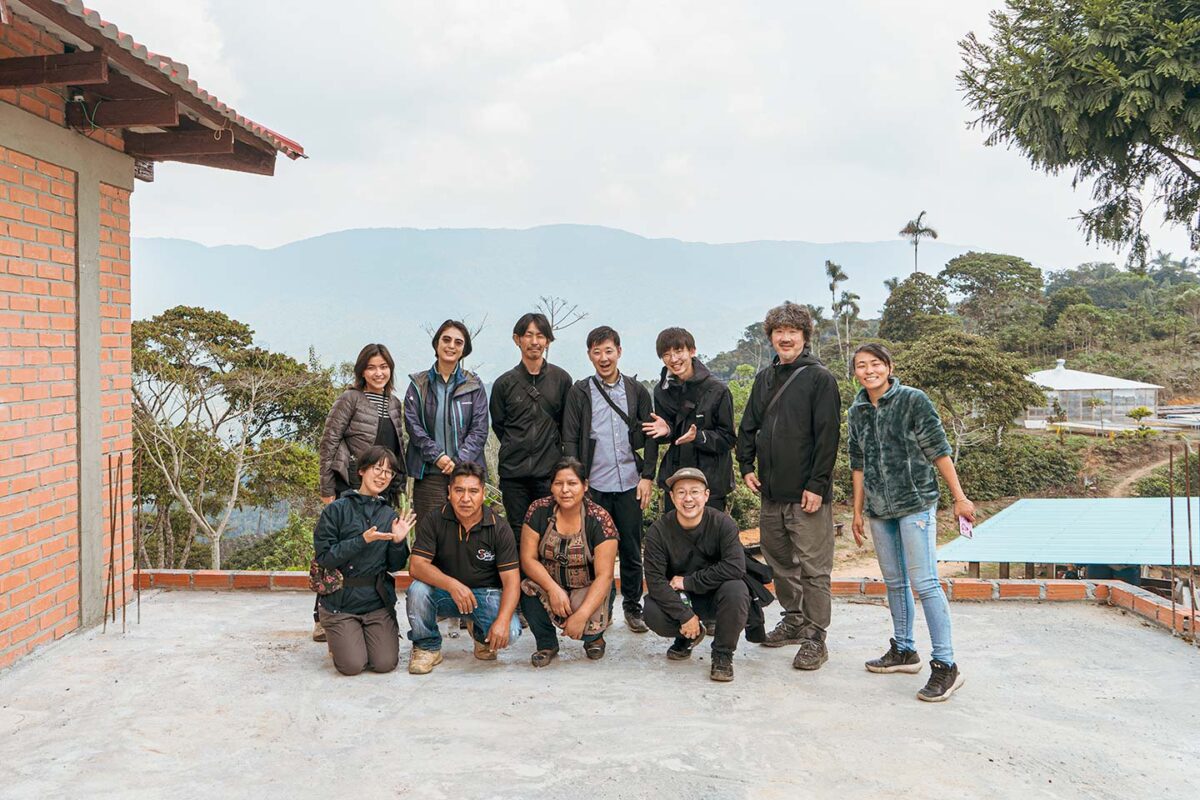
Not going is not an option
It was while I was dealing with this that I was invited to join Lab. It was a huge opportunity for me and I knew it was just what I needed to get me out of my rut.
When I heard about the project, my first choice of location was one of the African nations. It’s the furthest away from Japan and I knew this might be the only chance I’d ever get to go. We use greens from Ethiopia at Lattest, so it would have been nice to go there, but I would have been happy to be sent anywhere we had a connection to.
So when I heard I was going to Bolivia, I was of course excited about the trip – until I learned that virtually everyone else had specifically requested Bolivia. So here’s me, not really knowing much about Bolivia, going on a trip with roasters who know everything about Bolivia. I was worried that my ignorance could spoil the experience for them, and considered whether I should call the whole thing off.
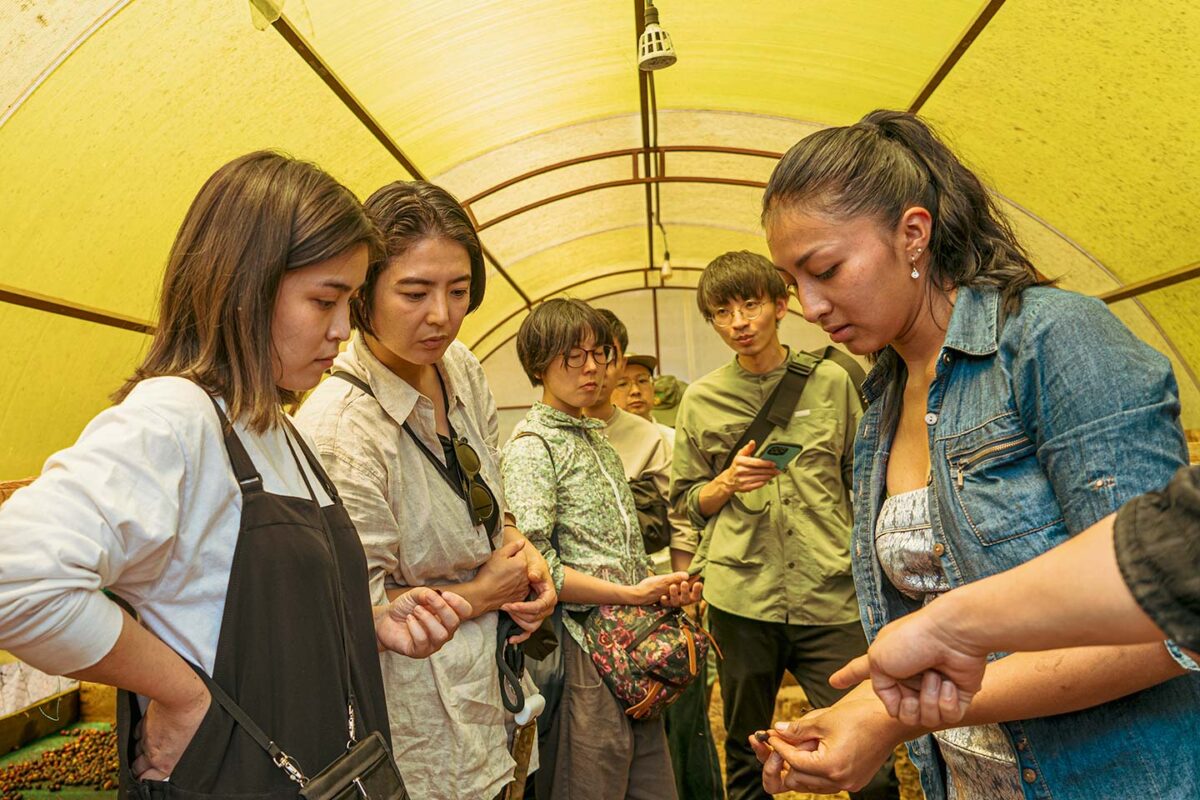
At the same time, I knew I had to go there, to share what I learned with the staff who didn’t have this opportunity. I decided to change my mindset. Maybe not knowing very much was a good thing. It could give me a different perspective to everyone else. I began to focus on how I could share the experience when I got back with photos or stories from my trip, and I started to look forward to it.
Of course, there was no way I was going to pass up the chance to visit a coffee farm. But it was good to get over my initial nerves, see the trip in a positive light, and realize all the possibilities it held.

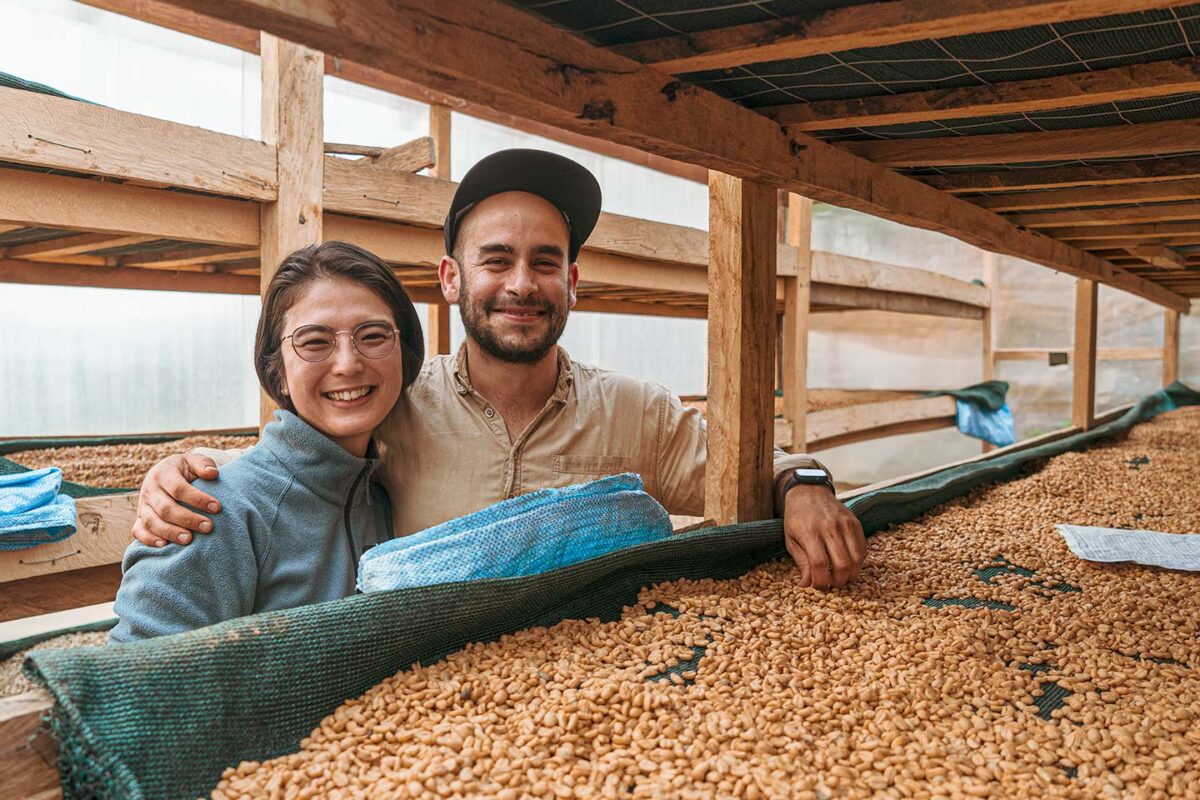
Building loyalty for producers
What awaited me in Bolivia was the thing I had lost – a love for coffee.
Camelo, watching us nervously as we cupped the coffee then breaking into a wide smile when we told him how delicious it was. Pedro, telling us how this was the first time to cup this lot of coffee, excitement and anticipation written all over his face. Nassia, sharing how she loves to hear the voice of the coffee come through as she washes the beans, her joy in her work obvious to anyone who spoke to her.
Every person I met shared the same deep love for coffee. Coffee farming is not an easy job. You’re at the whim of the weather, and every task is labor intensive. Yet despite this, they have not lost their love for coffee. It was a wake-up call. I was inspired by their philosophy and work ethic.
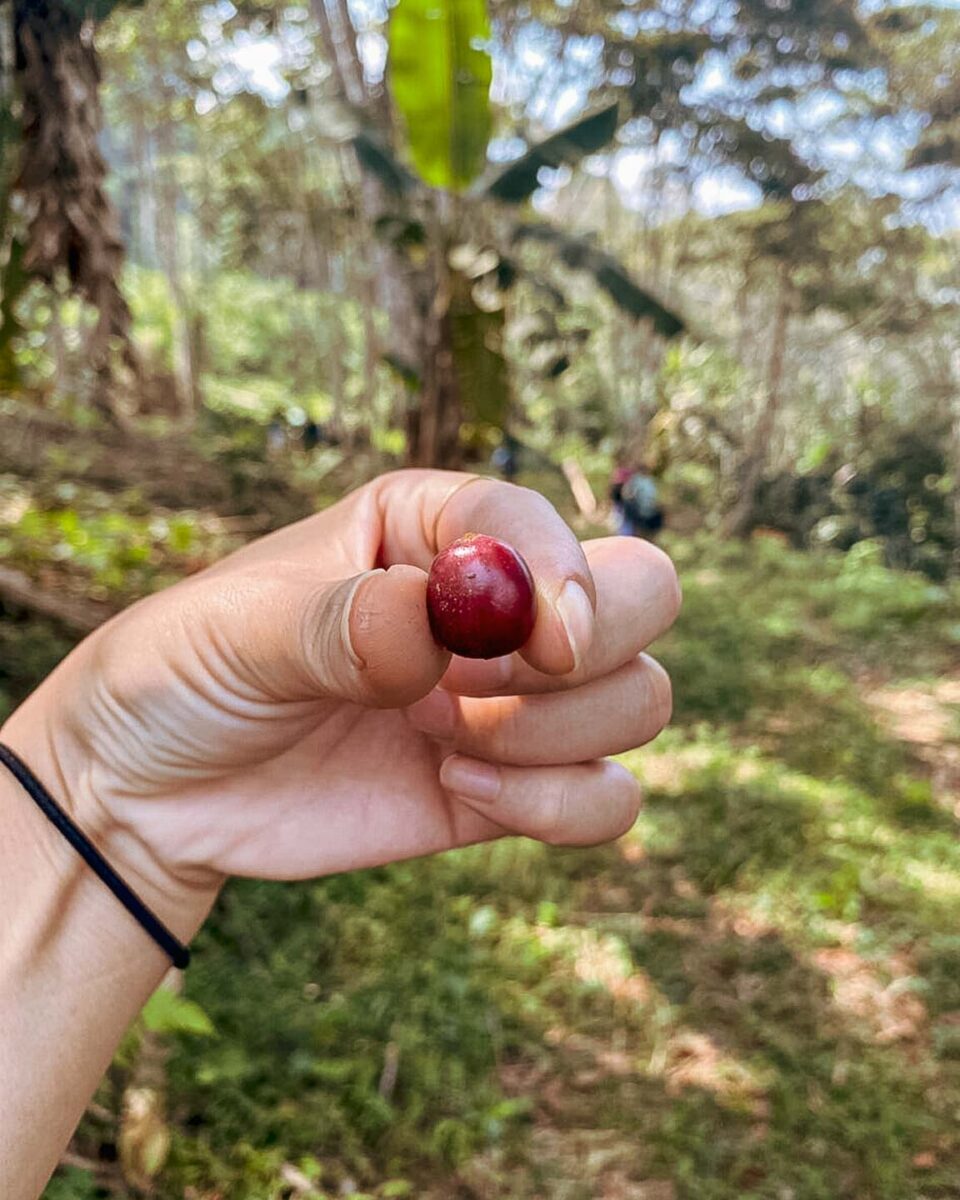
And it reminded me of how I felt when I first joined the industry ten years ago. I remembered how I’d come to Lattest as a customer and fallen in love with the place. Not just the coffee but the whole vibe of the cafe. I remembered how I’d been obsessed with latte art, spending hours mastering the technique. Remembering all that helped me get back to basics. Helped me get back to why I came to coffee in the first place.
When I got back to Japan, I discovered that my love for coffee had returned. It was worth going to Bolivia just for that. Until my trip, I was focused on building up a loyal customer base for Lattest. But after coming back I realized we needed to put the producers in the spotlight. I truly believed that if I could convey how this experience had made me feel, then even if people hadn’t been, they would still understand.
In fact, the trip had such a huge impression on me, that as soon as I got back to Japan I went to see the owner and told them that I wanted to go back again next year. But this time, I wanted to take some of the staff members with me. Even if we can only take one person, the experience they have will not only change their perspective, but will have a positive effect on everyone at Lattest- staff and customers.
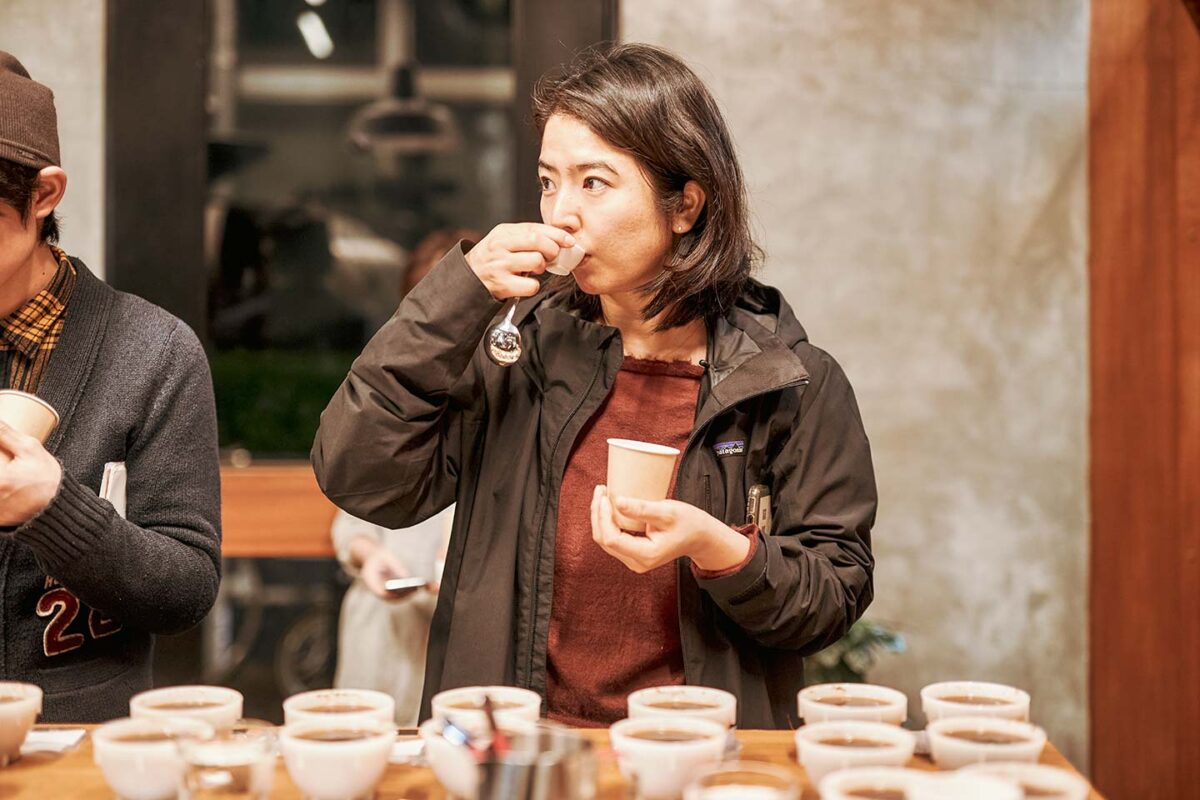
Coffee is a happiness best shared
This is not the first time I’ve thought of chucking in the towel with coffee. Last time, it was also Suginaga who convinced me to give it another go. At that time, I was the only roaster at Lattest and I was putting a lot of pressure on myself to grasp the complexities of roasting, and make sure I captured the profile correctly. I decided to take part in an event exclusive to female roasters, run by Suginaga and Muneshima from Soil Coffee & Stock. It exposed me to a whole new network of people, some who had been in the business way longer than me and had far more experience. It broadened my horizons.
It showed me there was so much I didn’t know. I’d somehow convinced myself that I couldn’t go any further, but after that event, I realized that there were so many possibilities and I decided to give coffee another chance. If I hadn’t attended that event, I probably wouldn’t be working in coffee now. It was so encouraging to meet people like me and know I wasn’t alone. I think that’s what helped me decide to stay.
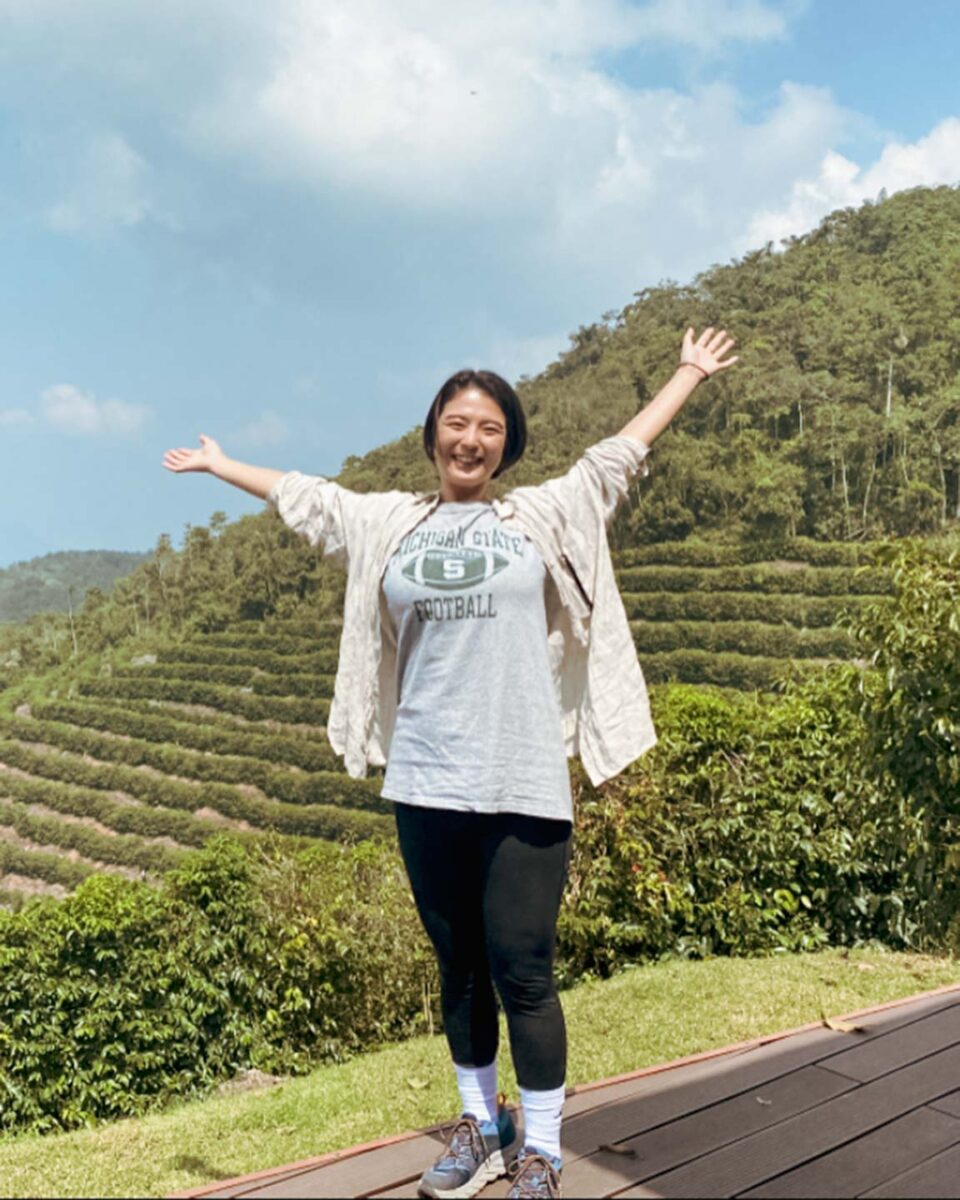
It’s been three months since I got back from Bolivia, and the effect hasn’t worn of yet. Coffee is again my favorite drink to relax with, and the perfect drink to enjoy with other people. The trip taught me that coffee is a drink better shared. And that’s what I want to keep on doing. Sharing coffee with as many people as possible, and doing it my way.
Before I went to Bolivia, I saw a busy day at the cafe as one full of missed opportunities to chat with customers. But now, I see it as a chance to share the producers’ stories with more people, even if only for an instant. That’s what I’m focusing on now. It’s not about how long I have to chat, but how well I can convey it.
Looking back, I can see that before I went to Bolivia, I was weighed down by so many things, all of them affecting my enjoyment of coffee. No wonder I lost my love for it. But after meeting the producers in Bolivia, I changed. The things that weighed me down are still there, but I don’t let them affect me anymore.
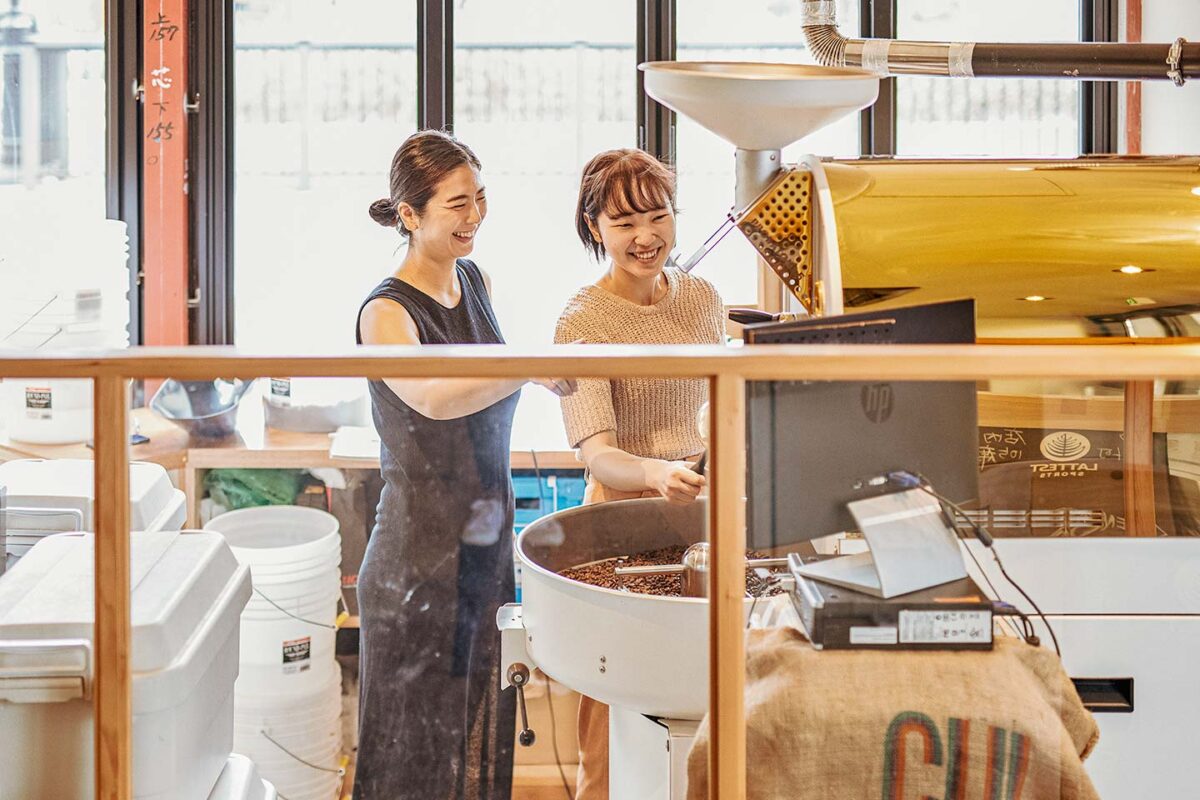
After the trip, I decided to stop comparing myself to others. Who cares if I don’t have the burning passion or commitment of other roasters. I tell myself that, what I do, what I bring still has value because I’m the only person who can do it like me, and that’s good enough.
I don’t have an exceptional talent, I’m just an average person. I might be a manager, but I couldn’t run the cafe without the help and support of all the staff. Now, roasting is done by me and other members of staff, and I want to make sure that everyone gets to have the same experiences that I’ve enjoyed.








